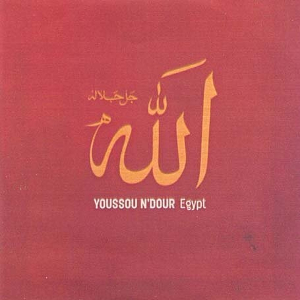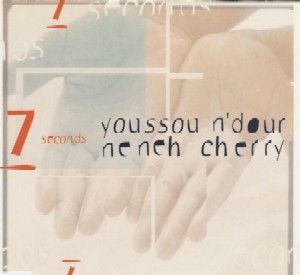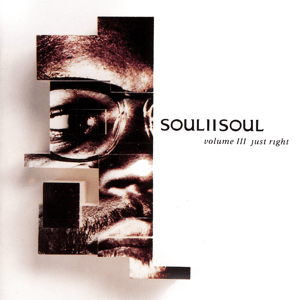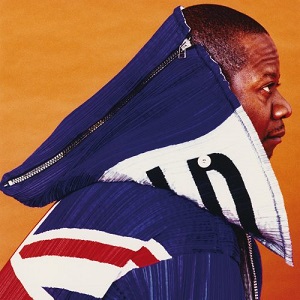
Youssou N'Dour is a Senegalese singer, songwriter, musician, composer, occasional actor, businessman, and politician. In 2004, Rolling Stone described him as, "perhaps the most famous singer alive" in Senegal and much of Africa and in 2023, the same publication ranked him at number 69 on its list of the 200 Greatest Singers of All Time. From April 2012 to September 2013, he was Senegal's Minister of Tourism.

Senegal's music is best known abroad due to the popularity of mbalax, a development of conservative music from different ethnic groups and sabar drumming popularized internationally by Youssou N'Dour.

Mamadou "Jimi" Mbaye is a Senegalese guitarist best known for his work with Youssou N'dour. Mbaye has developed a unique Senegalese guitar style in which he makes his Fender Stratocaster sound like local instruments such as the kora or xalam.

Orchestra Baobab is a Senegalese band established in 1970 as the house band of the Baobab Club in Dakar. Many of the band's original members had previously played with Star Band de Dakar in the 1960s. Directed by timbalero and vocalist Balla Sidibé, the group featured saxophonists Issa Cissoko and Thierno Koité, two singers, two guitarists and a rhythm section with drums, congas and bass guitar. Since their formation, the band has predominantly played a mix of son cubano, Wolof music, and to a lesser extent Mande musical traditions. Following the deaths of Cissoko in 2019 and Sidibé in 2020, Thierno Koité has become the leader of the band.
Mbalax is the national popular dance music of Senegal and the Gambia. Though associated with the Wolof, mbalax has its sacred origins in the Serer people's ultra-religious, ultra-conservative njuup music tradition—and their sacred ndut rite ceremonies. By the 1970s, it became a fusion with other popular music from the African diaspora, the West, and afropop such as jazz, soul, Latin, Congolese rumba, and rock blended with sabar, the traditional drumming and dance music of the Wolof of Senegal. The genre's name derived from accompanying rhythms used in sabar called mbalax.
Ashley Maher is a Canadian singer and songwriter who has meshed the rhythmic impulses of West Africa and Latin America with Western song structures.

This is the solo discography of Peter Gabriel, an English singer-songwriter, musician and humanitarian activist who rose to fame as the lead vocalist and flautist of the progressive rock band Genesis. After leaving Genesis, Gabriel went on to a successful solo career. His 1986 album, So, is his most commercially successful, selling five million copies in America, and the album's biggest hit, "Sledgehammer", won a record nine MTV Awards at the 1987 MTV Video Music Awards. The song is the most played music video in the history of the station.

"In Your Eyes" is a song by the English rock musician Peter Gabriel from his fifth solo studio album So (1986). It features Youssou N'Dour singing a part at the end of the song translated into his native Wolof. Gabriel's lyrics were inspired by an African tradition of ambiguity in song between romantic love and love of God.
Habib Faye was a bassist, keyboardist, guitar soloist, arranger, composer and Grammy-nominated producer from Senegal. He was mostly known as the musical director for Youssou N'dour's Super Étoile de Dakar. He was one of the most talented African bassists of the last quarter-century.

Egypt is a Grammy Award-winning album by the Senegalese musician Youssou N'Dour, on which he is accompanied by the Egyptian Fathy Salama Orchestra. By incorporating Arabic influences and focusing on Muslim religious themes, the album was a departure from previous N'Dour releases. In the original Senegalese release, it was named Sant Allah.

"7 Seconds" is a song composed by Senegalese and Swedish singer-songwriters Youssou N'Dour and Neneh Cherry with Cameron McVey and Jonathan Sharp. It was released in June 1994 by Columbia as a single performed by N'Dour and Cherry, and achieved success, reaching the number-one position in numerous countries; in France, it stayed at number one for 16 weeks, a record at the time. N'Dour featured the song on his seventh album, The Guide (Wommat) (1994), while Cherry included it on her 1996 album Man. "7 Seconds" also won the MTV Europe Music Award in the category for Best Song of 1994. Its music video was directed by French director Stéphane Sednaoui. NME magazine ranked the song number 40 in their list of the 50 best songs of 1994.

Immigrés is an album by Senegalese singer and percussionist Youssou N'Dour. AllMusic remarks that the album is "a good part of what put [N'Dour] on the international map".
Étoile de Dakar were a leading music group of Senegal in the late 1970s and early 1980s. Youssou N'Dour was one of the singers in the band and the band was a major part of N'Dour's rise to stardom in Senegal.

The Lion is an album by Youssou N'Dour, released in 1989. It was his first album to be distributed on a global scale.

Volume III Just Right is the third album by the English music collective Soul II Soul, released in 1992 through Ten and Virgin Records. Its first single was "Joy".

Set is an album by the Senegalese musician Youssou N'Dour, released in 1990. The album in part inspired the Senegalese youth movement Set-Setal, which sought to beautify Dakar.

Kabu is the second album by the Ethiopian singer Aster Aweke. It was released in 1991 via Columbia Records.

Emotion is an album by the Congolese singer Papa Wemba, released in 1995. Wemba sang mostly in Lingala.

The Message is an album by the Guinean-born Canadian musician Alpha Yaya Diallo. It was independently released in Canada in 1998, with an international release in 1999. The Message won a Juno Award for "Best Global Album". Diallo supported the album with a Canadian tour.

Specialist in All Styles is an album by the Senegalese band Orchestra Baobab, released in 2002. After the success of the Pirates Choice reissue, the band decided to record a reunion album. It was Orchestra Baobab's first album in 15 years. The album title was taken from a sign hanging outside a barbershop.
















